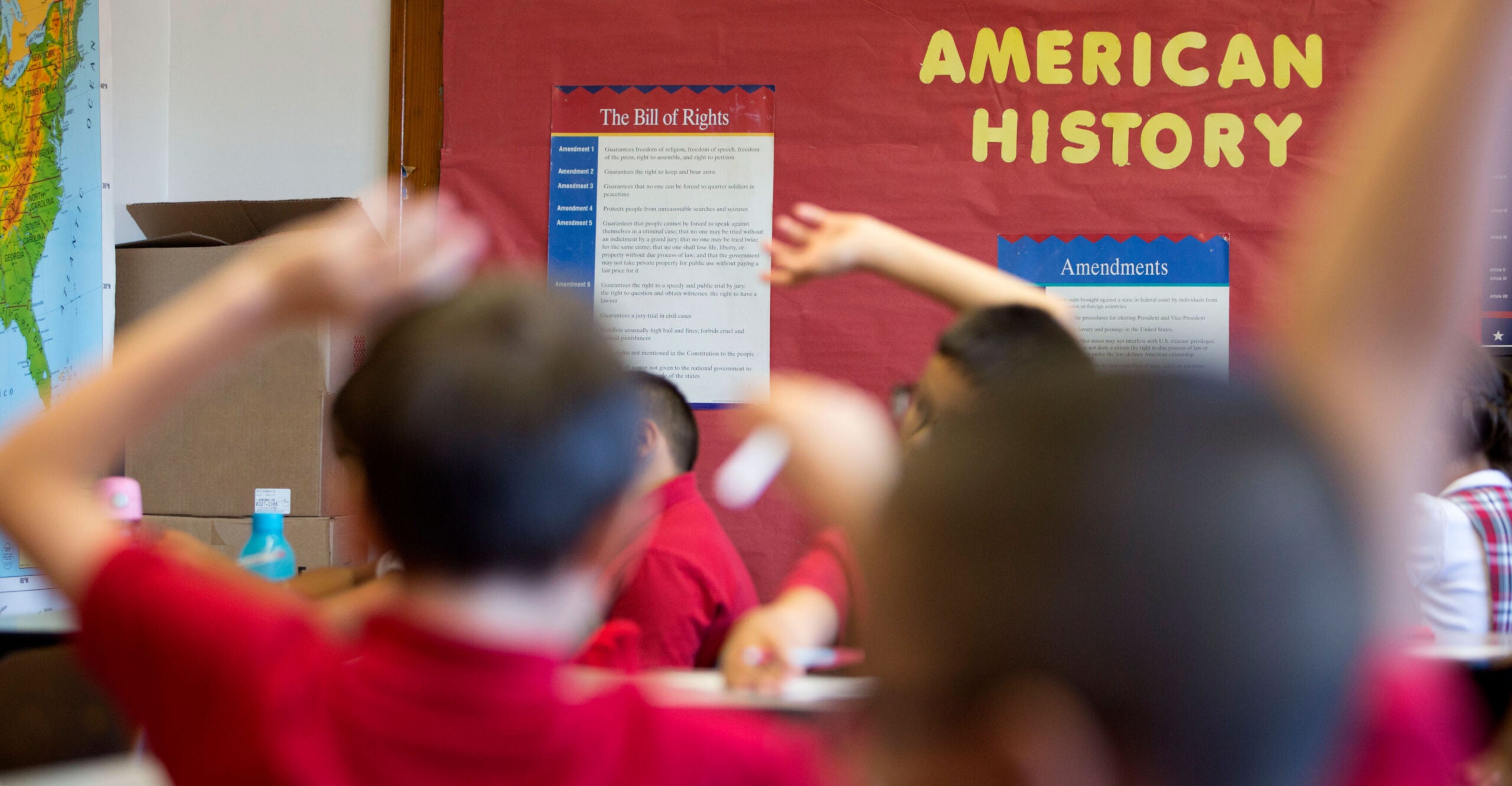Charter Schools Have Neglected Their Political Support to Their Own Detriment
A decade ago, charter schools were heralded as the crowning achievement of bipartisan education reform efforts. But during last week’s National School Choice Week observations, charters... Read More The post Charter Schools Have Neglected Their Political Support to Their Own Detriment appeared first on The Daily Signal.

A decade ago, charter schools were heralded as the crowning achievement of bipartisan education reform efforts.
But during last week’s National School Choice Week observations, charters were barely an afterthought, their political energy having been largely reappropriated to newer, more robust systems of school choice.
The future of the charter school movement is likely to be determined by how they adapt to this new reality. If early returns are any indication, education journalists can start penning advance obituaries.
Charter schools—publicly funded, but independently operated schools that are supposed to have autonomy to innovate—were first introduced in Minnesota in 1992 and rapidly expanded to now serve 45 states and more than 7% of school-age children in the United States.
Charter sector growth was fueled by bipartisan support, which held steady for nearly 30 years but has recently shown serious signs of strain. President Joe Biden, unlike former Presidents Bill Clinton and Barack Obama, cozied up to teachers unions and professed to “not being a fan” of charter schools, threatening to cut $40 million from federal startup grants to charter schools.
For her part, failed Democratic presidential candidate Kamala Harris was characteristically opaque about her plan for charter schools, but her unbridled support for teachers unions and antagonism toward charters when she was California’s attorney general offer good clues about the direction a Harris administration would have taken on the issue.
With the benefit of hindsight, the Democratic retreat on charters looks unsurprising and perhaps even inevitable. As political scientist Terry Moe detailed in his 2011 book “Special Interest: Teachers Unions and America’s Public Schools,” teachers unions are one of the most influential interest groups in American political life, and perhaps the most powerful within the Democratic Party.
It’s not especially shocking that an interest group that makes it impossible to fire bad teachers or succeeded in extorting taxpayers for hundreds of billions of dollars to reopen schools after COVID-19 shutdowns would eventually succeed in bringing Democrats to heel on their plans to snuff out threats to their monopoly power.
In anticipation of these threats, the charter movement (i.e., the network of philanthropists who donate to charters, authorizers who regulate them, and school leaders who run them) would have done well to protect its right flank (i.e., Republicans). After all, the teachers unions themselves can attest to the fact that polarized political support can sustain policy agendas.
Instead of even engaging in half-baked efforts to curry favor with conservatives, the charter movement “tried to play up to the party that structurally really can’t embrace them, while antagonizing—or on a good day, giving the cold shoulder—to the one that could,” as education analyst Andrew Rotherham rightly observed.
That approach—and the political vulnerabilities associated with it—were apparent as early as 2020. That year, KIPP schools, once the poster child for “no-excuse” charter schools, abandoned their “work hard, be nice” motto during the peak of the Great Awokening, denouncing the motto as a vestige of white supremacy.
Similar changes occurred throughout the charter sector, where young educators once passionate about student learning started channeling their energy toward larger ideas about societal change, often to the dismay of parents at the school.
Shortly after KIPP changed its motto, conservative activist Max Eden of the American Enterprise Institute called the story “a wake-up call” about ideological capture of charters.
“Conservatives should pressure their state legislatures to reform charter school laws to stop favoring incumbents like KIPP,” he recommended.
Charter school offerings need to include the full spectrum of political and social values and not just the left-wing types of schools preferred by the charter school movement.
Eden’s recommendations should have been heeded as a “wake-up call” within the charter world itself that future conservative support was not guaranteed.
Instead, the hyperpartisan tactic accelerated. The National Association of Charter School Authorizers (NACSA)—an organization that philanthropies generously furnish to set the standards for how charter schools are authorized (i.e., when schools should be approved or shuttered)—began insisting that DEI is an integral component of the authorizing process.
That decision (and other similarly leftist coded political posturing) plays out in predictably disastrous ways, including school operators bowing to authorizers’ demands for an “equity” focus and most charter schools taking on a pedagogical and cultural milieu that skews left of neighboring district schools.
In the past, conservatives might have tolerated this ideological capture, calculating that some choice is better than no choice. But that’s unlikely to hold true now.
Since 2022, 13 states have adopted universal school choice programs that allow public funds to be spent on private school tuition (among other expenses), and further expansion is anticipated.
Lawmakers likely will follow the cues of their constituents that this model is the future of choice.
In two states that have robust charter presence and rapidly growing populations, kindergarten charter enrollment has declined after the passage of Education Savings Accounts following years of steady growth. In Arizona, enrollment fell 8% in the two years following ESA adoption in 2022, and in Florida, kindergarten charter enrollment fell 3% in the year following ESA adoption in 2023.
The first 30 years of charter schools is a story about their ascent. If the movement continues down the path of ideological, technocratic control that privileges partisan regulators over parents, the next 30 years will be the story of their demise.
The post Charter Schools Have Neglected Their Political Support to Their Own Detriment appeared first on The Daily Signal.










